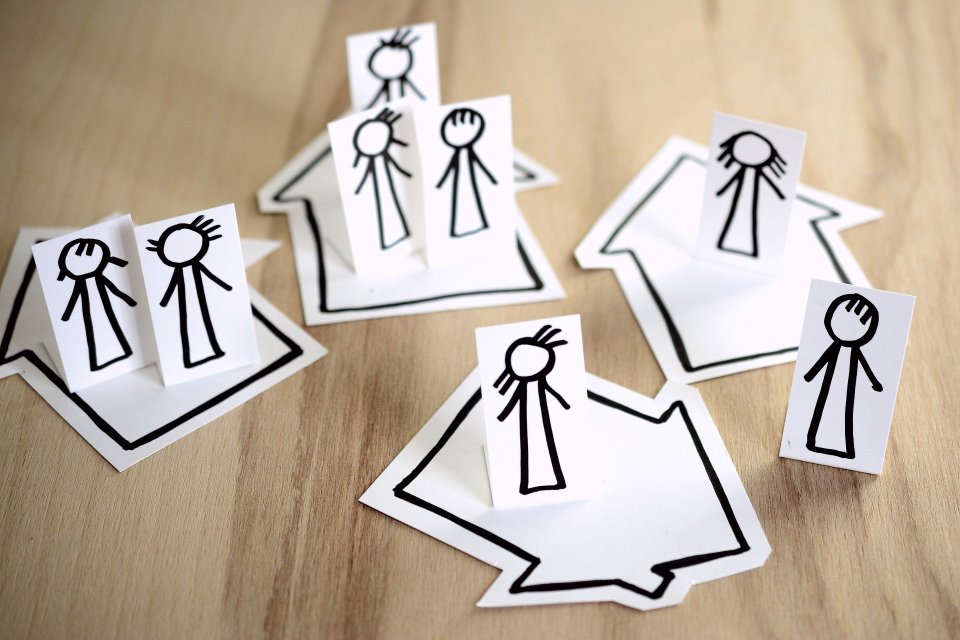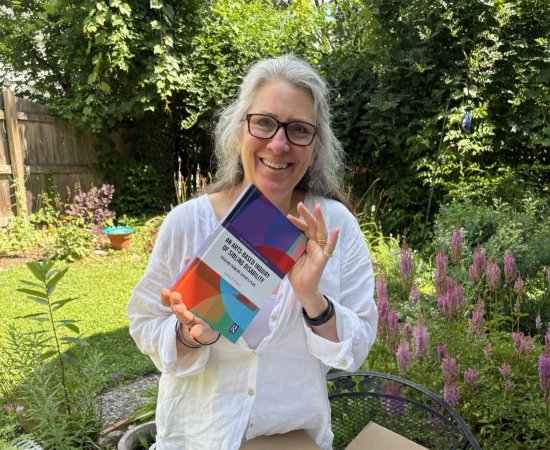
Filling the “Social Fuel Tank”

A new study co-authored by Dr. Elaine Paravati Harrigan ’15 explores the mental health consequences of social distancing—and how we might overcome them.
It’s no secret that socializing looks very different in the age of COVID-19. But what’s less widely known: the effect that social-distancing culture may have on mental health.
Elaine Paravati Harrigan ’15, is a UC psychology grad and a doctor of psychology at the University of Buffalo. She recently co-authored a study on fulfilling social needs through non-traditional means. The research was published in the journal Self and Identity and cited in a Forbes magazine piece, aptly titled, “How to be Social Without People.”

We talked to Paravati Harrigan about her research and the unexpected ways we can feel connected —and improve our mental health:
Congratulations! You recently earned your Ph.D. in psychology and have published a study on the "social fuel tank." What is that, and why is it important?
You can think about your social needs like your car gas tank. We all need to put gas into our tank in order to get to our destination. Your tank can be empty, full, or somewhere in between, but you do need to have enough filled in order to get to your destination. You can decide to fill your tank all the way to the top from one gas station, or you can get smaller amounts of gas from multiple gas stations.
In terms of social needs, we have a social fuel tank. This tank helps us understand if we are able to get to our destination—the destination being positive mental health outcomes, like feeling satisfied with our lives, having positive self-image, and feeling accepted by others. The problem is that past measures used in psychology research only tell us how much fuel is in the tank—not what types of fuel are in the tank, or how much of each type of fuel is in there.
In this study, the measure that I created helps researchers understand what types of fuel are in the tank, and how much of each type of fuel is in the tank, that is leading to those outcomes. It gives us a better idea of what is going on to help people get those positive outcomes.
How did you become interested in this?
I have been studying non-traditional social need fulfillment for several years, and wanted to find a better way to understand not only the "traditional" strategies we often study in psychology- things like spending time with family or friends or romantic partners- but also to understand more "non-traditional" strategies that also can fill our social needs. We have all sorts of "fuel" we can put into our tank, and this research demonstrates that these non-traditional strategies—things like watching TV shows where you feel like you can relate to the characters, or listening to music where you feel connected to the musical artist-—can help us fill our tanks and get to our final destination of positive mental health.
Why is it especially important now?
With social distancing guidelines, people may be worried that they will be isolated and therefore suffer mentally and physically. That's definitely a valid concern—tons of research tells us that social needs are fundamentally important, and without social need fulfillment, you can experience negative mental and physical health outcomes. Of course, these social distancing guidelines are meant to keep us healthy and safe, NOT to worsen our health, so it is important that people take this time to utilize non-traditional social strategies so they can still fill their tanks. In other words, you might not be able to go out to eat with friends, but you can still order the takeout that reminds you of your Taco Tuesday tradition with them, and feel connected in that way. You might not be able to go to a large concert, but you can go on social media and watch your favorite celebrity sing their songs in their living room, and feel connected in that way. These non-traditional strategies can help us feel better just like the traditional strategies do, so we aren't doomed just because of social distancing guidelines- we just have to fill our tanks with different types of gas to get to the final destination.
This pandemic is demonstrating that our social needs are flexible and can be filled in all sorts of ways, and that we can continue to thrive even when faced with challenges.
If you had to guess, how will our social and emotional lives be different following this pandemic?
Social needs have always been important, from our time as cavemen living in groups to today's modern society. We continue to adapt the ways we fill social needs to fit the demands and constraints of society. I think this pandemic is demonstrating that our social needs are flexible and can be filled in all sorts of ways, and that we can continue to thrive even when faced with challenges. Going forward, some might find that they really enjoy integrating non-traditional strategies into their daily lives, and may want to do these things more often to help them feel good, even when we are in our new normal!
Any advice for people as we navigate through this health, social, financial and emotional crisis?
Keep in mind that as a collective, we have gone through countless challenges throughout history. What has been consistent through it all is that we have always adapted and been resilient despite the challenges we have faced. Human beings are incredibly good at doing mental gymnastics to maintain their sense of themselves and the world around them—that was true in the past, and it is still true today. We can certainly persevere through this crisis just as we have gotten through other crises before. In the meantime, fill your social fuel tank in whatever way feels good for you, and know that we are going to get through this!
More Stories

Keep Looking Up: Sydney Kinsella ’26
For centuries, human beings have looked to the stars in search of meaning. Sydney Kinsella ’26, along with her...

From Malaysia to Masonic (and beyond)
A Rohingya refugee naturalized as a U.S. citizen in 2025, Nurhaliza Syukur ’26 was born and raised in Malaysia, coming to the United States in 2019 with aspirations of a career in medicine.

Big little sister
Dr. Franits' book examines texts and other artistic works rendered by siblings of individuals with disabilities, interrogating the impact of disability on the identity of non-disabled siblings.
I would like to see logins and resources for:
For a general list of frequently used logins, you can also visit our logins page.
